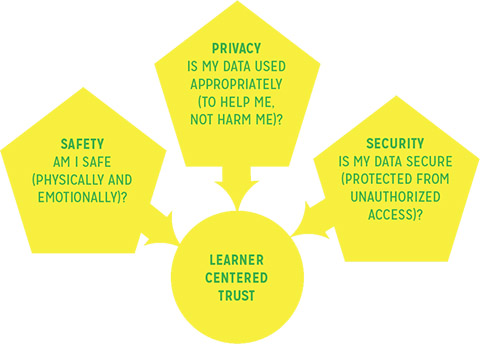A new report on U.S. education and the Internet is recommending more than two dozen steps to improve the educational system and some of them could affect game developers looking to use their products to educate.
The report, “Learner at the Center of a Networked World,” was produced by the Aspen Institute Task Force on Learning and the Internet and deals with a huge swath of issues – from broadband access at home and school to questions of access for non-English speakers to online security and digital literacy.
The full report is worth checking out, but we wanted to pull a few areas that game developers may want to pay special attention to if they are developing educational products.
Games in the Mix
Central to the report’s argument is that education happens all of the time – both in the classroom and outside of it – and the educational system needs to find a way to benefit from this reality and allow students to learn whether they are being taught in a formal classroom or playing a game that has educational elements to it.
“Our digital environments—social networks, mobile apps, online games and participatory websites—also require trust. Trust in the information, in the relationship between student and teacher, and in the medium itself,” the commission writes in its executive summary.
You can hear the commission explain its mission in this short video the released along with the report.
The report often makes reference to new digital technologies as tools for teaching. It repeatedly stresses the need to embrace online and digital games as ways to engage students, personalize learning and gauge student success.
Assessment
One spot where games clearly stand out is in the area of measuring student knowledge and learning – the old “assessment” thing.
The report recommends schools and policy makers do more to embrace the potential of using other methods to gauge student performance, writing, “New methods of more fine-grained assessment of student accomplishment are now available. These include real-time assessments embedded in new learning platforms and education games. In addition to traditional academic credentials, there is also a growing array of badges that document the acquisition of specific skills or learning experiences. One of the advantages of badges is that they can recognize learning no matter where it occurs.”
Many games – like SimCityEDU and After the Storm – market themselves on this ability to assess students using the game.
“Interoperability”
But one of the other things that game developers should take note of is the desire by this group to ensure that these networks – whether online or in a school – work together and are not fundamentally different from district to district. In education, they see the Common Core standards as a start at what they propose.
“Common Core also creates an “interoperability” of resources and instruction among states that was impossible when there were 50 different standards. This not only helps teachers but also makes it easier for content creators to develop materials once and share it across the nation,” the report argues.
For developers this could mean that a game that aims to teach 3rd graders math should be applicable in most states. The task force sees better interoperability as a way to encourage more businesses to create tools for schools to use as the market would be a bit less fragmented.
Considering Privacy Rules
Another element of the report to take note of is its recommendations around child privacy.
“Realizing the benefits of learning networks will necessitate a commitment to establishing trust with teachers, parents and students that children will have safe experiences online and that sensitive personal information is securely protected,” the commission writes. “Trust is a prerequisite for learning that is based on students exploring online resources, taking online courses and engaging with different educational partners. Without trust, the ultimate success of networked learning could be in jeopardy.”
But even as they stress the need for trust, the task forced also cautions that some of the efforts to protect privacy may have inadvertently limited the benefits students could see from digital technology and personalized learning.

The report recommends that how data about kids is being used should be considered before banning its collection.
The panel recommends a major assessment of COPPA – the child privacy protection act – and other federal and state laws to gauge the “strengths and limitations of these approaches, as we do not want to so overprotect our young learners that they do not have access to high-quality content.”
For developers, that doesn’t mean anything yet, but what it does highlight is that some within the policy and foundation world are pushing to reassess the use of data about children, to add, as you can see in the image from the report, a qualitative assessment about how the data is being used to the equation.
This could lead to an eventual assessment of whether the data a game collects is used to improve the educational experience for the child – and allowing that – versus commercial or other purposes that do not benefit the child.
